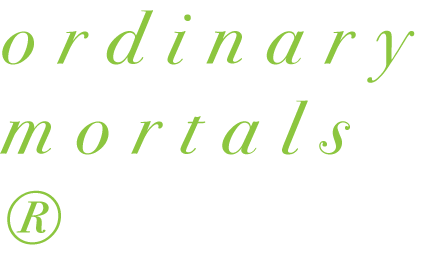Talking About Health
For many of us outside of the South and Southwest, the racing season is coming to an end. Most of us who do multi-sport races do them for a variety of reasons. One of them is to promote our personal health. So perhaps it is time to consider just what health is, or at least to consider what I, as a life-long public health physician, think health is.
Health and its verbal and companion in life, wellness (to which subject we shall return in a future column). You know the drill. If you practice a healthy lifestyle, you can lower your risk of contracting a wide variety of diseases and negative health conditions, or at least you can delay their onset. Engaging in what can be called the "baseline" dimensions of healthy living can, for example, improve your fitness level, help you lose weight, better your physical appearance, enable you to handle life's stresses more effectively, and lead to a better family life. Most importantly to my way of thinking, most of us who do these sorts of things feel better and feel better about ourselves, now. Entering the broader stream of the healthy life-style can also positively affect the emotional, intellectual, cultural, occupational, spiritual, and social elements of your life.
At any given time, health status is determined by three broad groups of factors: genetic, environmental, and personal/behavioral. All are important. All are constantly interacting with each other over time in a complex, dynamic, three-dimensional feed-back loop. As Dr. Lester Breslow, the late Dean Emeritus of the University of California at Los Angeles School of Public Health and one of my early mentors when I was starting out in Public Health has said:
"[L]ifestyle consists of ways of living, the patterns of behavior, in the circumstances of one's life. Increasingly in industrialized society we create for ourselves, individually and collectively, both the circumstances of life and our ways of living in those circumstances. And we are beginning to recognize that both those facets of lifestyle strongly influence how long we live and how well." (References available upon request.)
The Ten Central Concepts of Health Promotion and Disease Prevention
On the academic side of my work, some time ago I developed what I call the "Ten Central Concepts of Health Promotion/Disease Prevention." There is nothing magical or mystical about them. For the most part, each one is simply a restatement of an element of received wisdom about the substance and processes of health and wellness and how to go about becoming healthy and well. The central idea here is that theory can inform practice and be the handmaiden of it. And so, here they are:
I. Health is a state of being (while wellness is a process of being).
II. Health status is determined by a broad range of factors, not just one.
III. Health has a natural history, just like disease does.
IV. Central to staying healthy and getting healthier is a broad array of health-related activities and interventions.
V. In many behavior change endeavours, success is relative.
VI. Risks to health can be reduced; rarely is there any certainty of outcome.
VII. The essence of healthy living is achieving balance in one’s life.
VIII. For most personal behavior change efforts, there is a common mental pathway to success.
IX. Motivation is a process, not a thing.
X. Assessment, goal-setting, and mobilizing motivation are the central mental tasks in personal behavior change.
We are not going to get into a detailed description, discussion, and analysis of the Ten Concepts here. But briefly, they fall into two groups. The first seven are the primarily "substantive" common denominators of healthy living. These Concepts define and describe what health is about, what its theoretical and philosophical substance is, and how it may be characterized and understood, both in individuals and in the abstract. The last three are the “process” concepts, the common denominators of how individuals go about changing their personal health-related behaviors.
As you review what you have done this year, start thinking about what you are going to do over the winter, and perhaps even now start looking forward to next season (as I must admit I am doing already) perhaps these thoughts about health, what it is and how we go about promoting it for ourselves, will in part help to guide your thoughts.
This series of thoughts and recommendations for beginner and recreational triathletes and duathletes by Dr. Steve Jonas is drawn in part from his book, 101 Ideas and Insights for Triathletes and Duathletes (Monterey, CA: Healthy Learning/Coaches Choice, 2011), text used with permission. The book can be purchased at: https://www.healthylearning.com/p-5629-101-ideas-insights-for-triathletes-duathletes.aspx.” Steve’s most recent multisport book is Duathlon Training and Racing for Ordinary Mortals®: Getting Started and Staying with It (Guilford, CT: Globe Pequot Press/FalconGuides, 2012), available at Duathlon Training and Racing for Ordinary Mortals.” His original book, Triathloning for Ordinary Mortals®, 2nd. Ed, can be found at Amazon.com, and Barnes and Noble.com.
